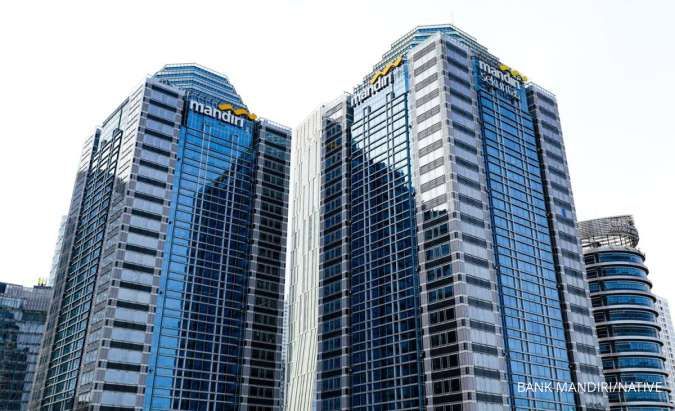JAKARTA. The government’s plan to open up more industries to foreign investments may push up total realized investments further to an impressive Rp 500 trillion (US$43.5 billion) in 2014, says the Investment Coordinating Board (BKPM).After years of maintaining growth at above 20 percent in realized investments, Indonesia is expected to post only 15 percent growth to reach Rp 450 trillion next year, the slowest growth experienced in the past three years, according to the BKPM data.But, the plan to revise the negative investment list (DNI) — sectors that are partially or wholly closed to private foreign and/or domestic investors — could reverse the weakening trend of investments, BKPM Chairman Mahendra Siregar said.As a consequence, realized investments might increase by 25 percent next year to top Rp 500 trillion, he said.“If we consistently improve our investment climate by continuously conducting structural reforms, then the current strong growth of investments can be maintained, or even pushed higher,” he wrote in a text message on Monday.Last week, the government unveiled several possible revisions to the DNI, which includes plans to loosen the ownership cap for foreign investors in several industries, such as telecommunications, ecotourism and pharmaceutical.In industries such as airport and seaport management, foreign investors will soon be able to hold 100 percent ownership, a plan that is expected to lure foreign investors to the strategic infrastructure sectors.Mahendra also took time to lash out at critics who denounced the DNI revision as un-nationalistic and said that it reflected the government’s excessive favoritism toward foreign investors.The BKPM chief said no one should underrate the importance of foreign direct investment (FDI) — which accounted for 70 percent of total realized investments — to Indonesia’s economy.In fact, Mahendra said, observers should realize the huge contribution of foreign investors to the economy, as evinced by additional tax revenues, the creation of jobs as well as improvement of the country’s balance of payments position due to the foreign funds that they brought in.“In my view ‘utopian thinking’ that gives no clear direction to our economy will not be able to determine whether we can become one of the world’s top 10 economies in the next 15 years,” he said.Economists have highlighted the need for Indonesia to attract more FDI inflows to reverse the slowdown trend in its economic growth.Indonesia posted its slowest economic growth in four years at 5.8 percent in the third quarter, mainly due to the moderation in investments — the second-biggest growth driver that accounts for 33 percent of Indonesia’s gross domestic product (GDP).Imposing restrictions on FDI would lead to further economic slowdown because emerging countries would need strong investment growth, as well as a higher investment-to-GDP ratio, to sustain their economic expansion in the long-run, said Nouriel Roubini, an economist from New York University who is called “Dr. Doom” for correctly predicting the 2008 financial crisis.Indonesia also needed strong FDI inflows to improve the position of its balance of payments, which recorded a $2.5 billion deficit in the second quarter due to the widening current account deficit, he added.“To finance the deficit, FDI is a more stable form of financing rather than ‘hot money’ from equity flows, which are more vulnerable and subject to liquidity runs,” Roubini said in Jakarta on Monday.(Satria Sambijantoro/The Jakarta Post)
2014, investment may top Rp 500 T on DNI revision
JAKARTA. The government’s plan to open up more industries to foreign investments may push up total realized investments further to an impressive Rp 500 trillion (US$43.5 billion) in 2014, says the Investment Coordinating Board (BKPM).After years of maintaining growth at above 20 percent in realized investments, Indonesia is expected to post only 15 percent growth to reach Rp 450 trillion next year, the slowest growth experienced in the past three years, according to the BKPM data.But, the plan to revise the negative investment list (DNI) — sectors that are partially or wholly closed to private foreign and/or domestic investors — could reverse the weakening trend of investments, BKPM Chairman Mahendra Siregar said.As a consequence, realized investments might increase by 25 percent next year to top Rp 500 trillion, he said.“If we consistently improve our investment climate by continuously conducting structural reforms, then the current strong growth of investments can be maintained, or even pushed higher,” he wrote in a text message on Monday.Last week, the government unveiled several possible revisions to the DNI, which includes plans to loosen the ownership cap for foreign investors in several industries, such as telecommunications, ecotourism and pharmaceutical.In industries such as airport and seaport management, foreign investors will soon be able to hold 100 percent ownership, a plan that is expected to lure foreign investors to the strategic infrastructure sectors.Mahendra also took time to lash out at critics who denounced the DNI revision as un-nationalistic and said that it reflected the government’s excessive favoritism toward foreign investors.The BKPM chief said no one should underrate the importance of foreign direct investment (FDI) — which accounted for 70 percent of total realized investments — to Indonesia’s economy.In fact, Mahendra said, observers should realize the huge contribution of foreign investors to the economy, as evinced by additional tax revenues, the creation of jobs as well as improvement of the country’s balance of payments position due to the foreign funds that they brought in.“In my view ‘utopian thinking’ that gives no clear direction to our economy will not be able to determine whether we can become one of the world’s top 10 economies in the next 15 years,” he said.Economists have highlighted the need for Indonesia to attract more FDI inflows to reverse the slowdown trend in its economic growth.Indonesia posted its slowest economic growth in four years at 5.8 percent in the third quarter, mainly due to the moderation in investments — the second-biggest growth driver that accounts for 33 percent of Indonesia’s gross domestic product (GDP).Imposing restrictions on FDI would lead to further economic slowdown because emerging countries would need strong investment growth, as well as a higher investment-to-GDP ratio, to sustain their economic expansion in the long-run, said Nouriel Roubini, an economist from New York University who is called “Dr. Doom” for correctly predicting the 2008 financial crisis.Indonesia also needed strong FDI inflows to improve the position of its balance of payments, which recorded a $2.5 billion deficit in the second quarter due to the widening current account deficit, he added.“To finance the deficit, FDI is a more stable form of financing rather than ‘hot money’ from equity flows, which are more vulnerable and subject to liquidity runs,” Roubini said in Jakarta on Monday.(Satria Sambijantoro/The Jakarta Post)

